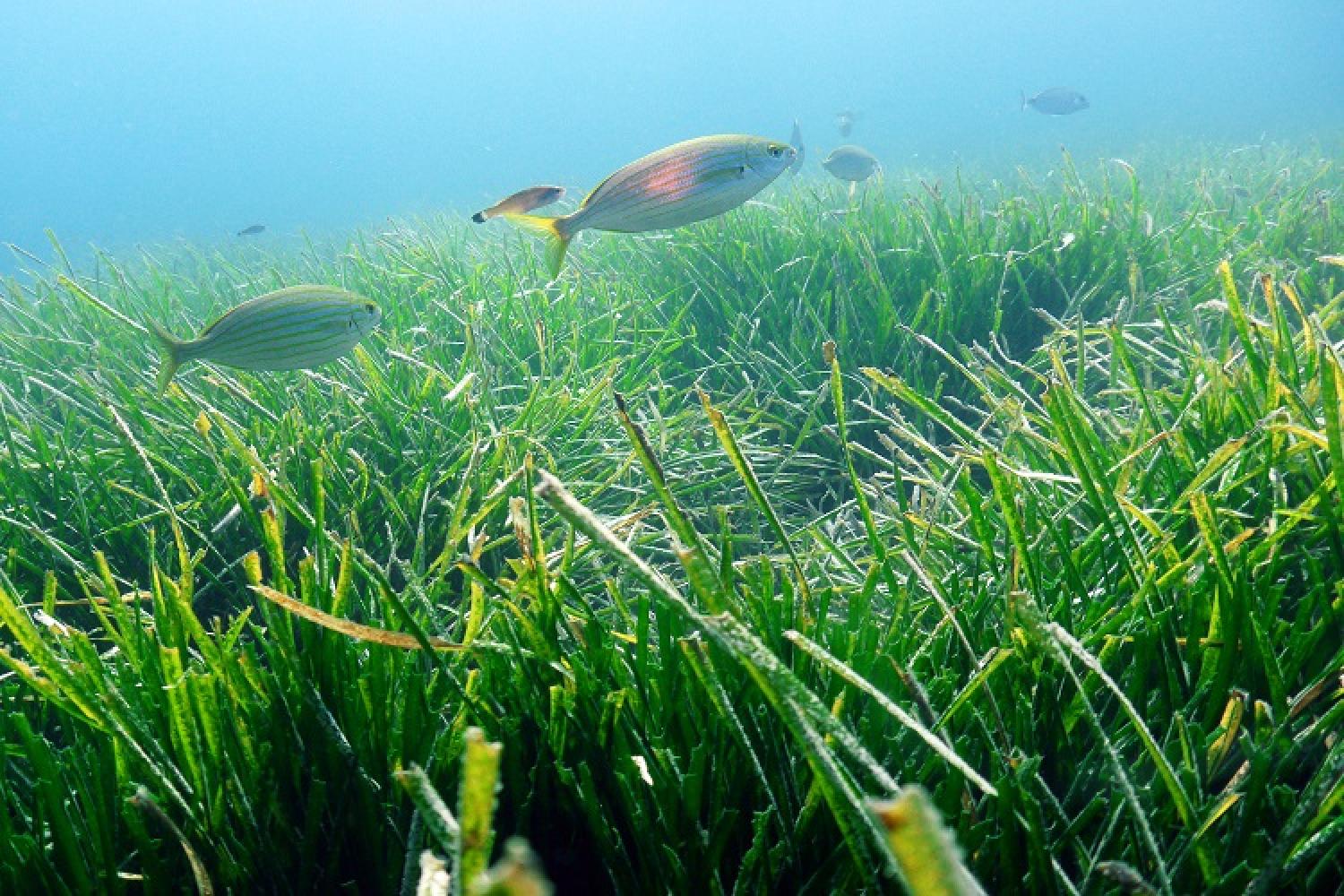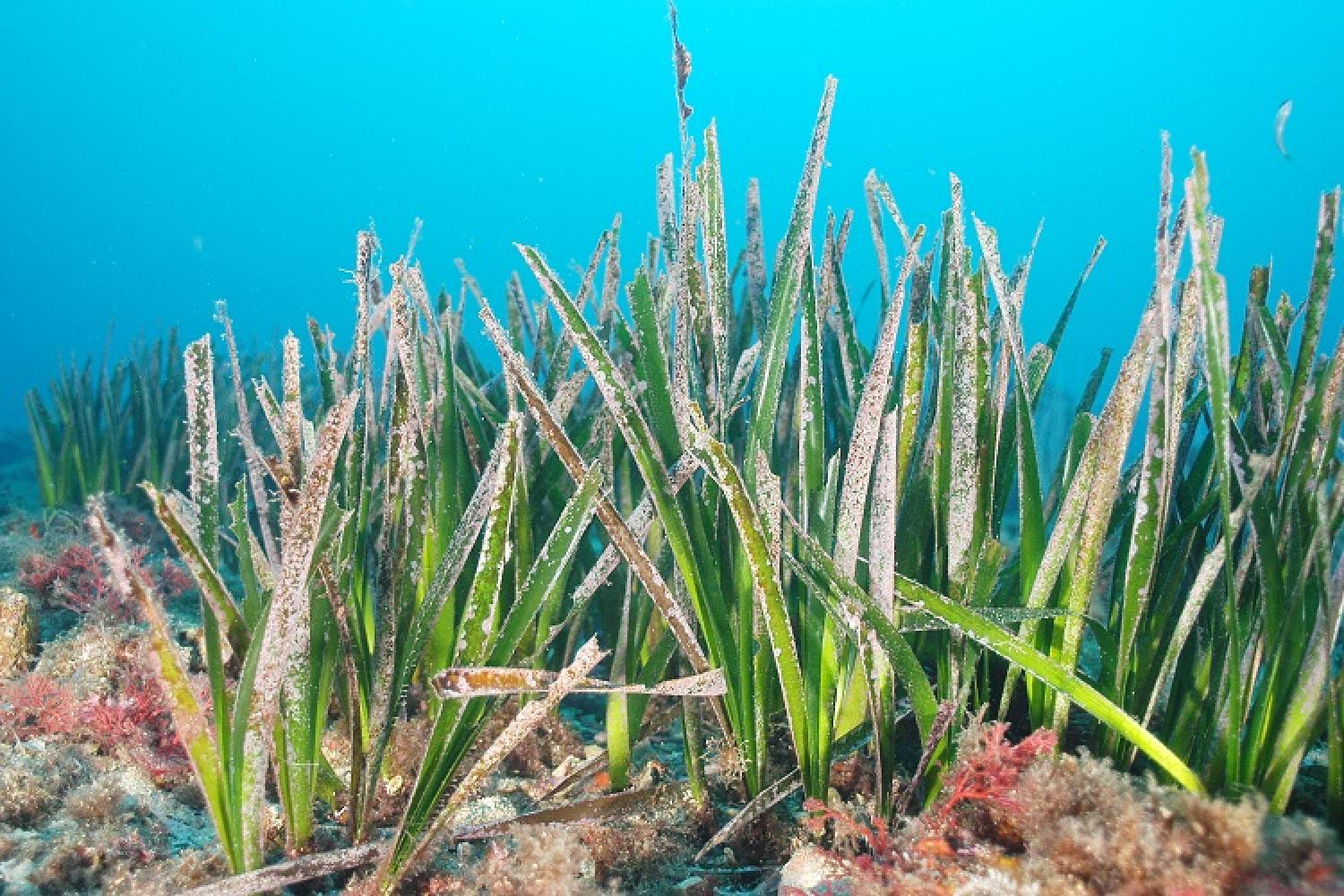Description
With is large leaves in ribbons that ripple in the swell, Neptune grass covers seabeds, from the surface of the sea and up to 40 meters deep, forming what is known as “neptune grass meadows”. A key species that plays a major ecological and economical role and is endemic to the Mediterranean sea, Neptune grass is a plant and not an algae! It is the lungs of our sea thanks to the oxygen that it produces (which, per square meter, can be higher than that of the Amazon forest!). It is also the first link in the food chain owing to its abundance. Its ecological role is well recognised and its is protected at a national level in France. It grows slowly: one meter per century...
Scientific name
Posidonia oceanica
Where and when can you see it?
- Natural habitats: Neptune grass meadow
- Flowering season: From August to November
Did you know?
Its French name Posidonie comes from Poseidon, God of the Sea in Greek mythology. The underwater meadows that it forms are one of the most productive ecosystems on the planet, where more than 400 species of algae and thousands of animals live.
Conservation stakes
Very strong
Threats
- Alteration in water quality and clarity
- Destruction through coastal developments, trawling, and anchoring of boats.
- Global warming
- Invasive species: algae and fish
Conservation management initiatives
- Management and development of mooring areas
- Improvement of wastewater treatment
- Raise public awareness
How can I help to protect it?
- In the case of anchoring out at sea, I only anchor in areas where Neptune grass meadows are not present
- I raise the anchor vertically using an anchor buoy rope
- I avoid staying anchored in the event of strong winds in order to limit the chain pounding on the meadows
- I do not disturb the plants and marine wildlife. I look but I don’t touch !
- I report any unusual environmental incidents
- I recover waste and dispose of it in suitable bins on land
- I do not gather souvenirs from the sea
- I share this best practice with other seafarers and raise their awareness.


